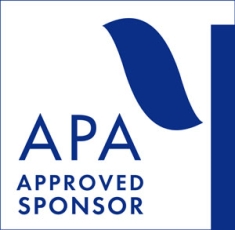A Delicate Balancing Act: Ethical Considerations When Using Applied Behavior Analysis (ABA)
ON-DEMAND WEBINAR
Instructor: Erica Dashow, Ph.D., BCBA-D
Instructional Level: Introductory
1 CE Credit for Psychologists
1 ETHICS CE Credit for BCBA/BCABA
Price: $25
Description
Applied behavior analysis (ABA) is a form of therapy that uses tactics derived from behavioral principles to create meaningful behavior change. As with any therapy, it is important to be aware of the ethical obligations that one has when implementing such strategies. This workshop is designed for BCBAs, psychologists, special educators, teachers, and paraprofessionals interested in learning more about the ethical considerations that must be taken into account when using ABA for assessment and treatment, and how these considerations will inform when and how specific strategies should be used. An overview of the basic principles of ABA and the Behavior Analyst Certification Board guidelines for ethical conduct will be provided. Topics covered will include the ethical considerations of common behavioral procedures such as functional analyses, punishment, and extinction, and the rights of an individual in regards to assessment and treatment.
Learning Objectives
- List the core ethical principles of behavior analysts
- Explain the ethical considerations of using punishment-based procedures
- Describe the rights of individuals receiving behavior analytic services
Instructor
Erica Dashow, Ph.D., BCBA-D, is a postdoctoral fellow and board-certified behavior analyst at the Center for Cognitive Behavior Therapy in East Brunswick, NJ, where she provides cognitive-behavior therapy for children and adolescents with a range of difficulties. She has particular expertise in the assessment and treatment of youth with feeding disorders, anxiety, obsessive-compulsive disorder, attention deficit hyperactivity disorder, oppositional defiant disorder, challenging behavior, and autism spectrum disorder. Dr. Dashow also collaborates with parents and school-based professionals to enhance treatment outcomes. In addition to her work at the Center for CBT, Dr. Dashow has presented at a number of local and national professional conferences on disruptive behavior, autism, and feeding disorders. Dr. Dashow earned her doctorate in clinical psychology from Rutgers University, where she received extensive training in working with individuals with autism spectrum disorder through the Douglass Developmental Disabilities Center. Dr. Dashow completed her clinical internship at the Kennedy Krieger Institute in Baltimore, Maryland, where she provided evidence-based treatment for children and adolescents in the Pediatric Feeding Disorders Program and the Pediatric Developmental Disorders Clinic. She completed a postdoctoral fellowship at the Kennedy Krieger Institute Pediatric Feeding Disorders Program and is currently completing a postdoctoral fellowship at the Center for CBT.
Dr. Dashow does not have any conflicts of interest for this program.
Continuing Education Policy:
Rutgers University- New Brunswick, Graduate School of Applied and Professional Psychology is an approved provider of BCBA continuing education credits. “The Behavior Analyst Certification Board (“BACB”) does not sponsor, approve or endorse Rutgers University- New Brunswick, Graduate School of Applied and Professional Psychology, the materials, information or sessions identified herein.”
Contact Us
For questions, please contact: ce@gsapp.rutgers.edu or call (848) 445-3577
Rutgers Graduate School of Applied and Professional Psychology (GSAPP) is recognized by the New York State Education Department's State Board for Psychology as an approved provider of continuing education for licensed psychologists #PSY-0123.

Rutgers Graduate School of Applied & Professional Psychology is approved by the American Psychological Association to sponsor continuing education for psychologists. Rutgers Graduate School of Applied & Professional Psychology maintains responsibility for this program and its content.